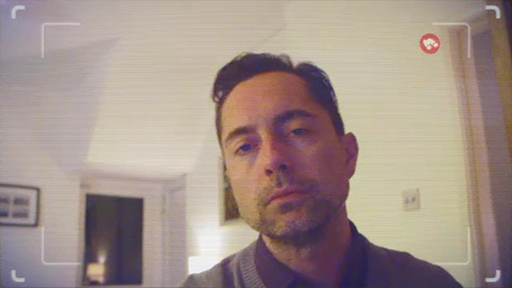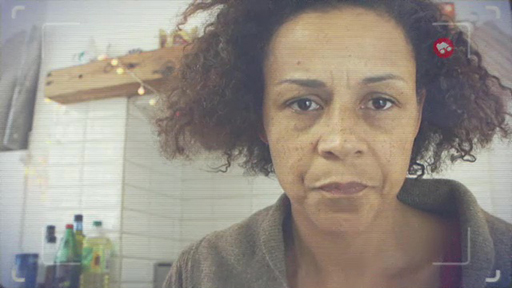Use 'Print preview' to check the number of pages and printer settings.
Print functionality varies between browsers.
Printable page generated Thursday, 22 January 2026, 7:33 AM
4. Working therapeutically with infidelity
4. Working therapeutically with infidelity
In this topic, we focus on what the content in Topics 1–3 means for working more effectively and confidently with individuals and couples presenting infidelity. You will learn about the various stages that may be part of a therapeutic process of working with infidelity.
While working with these clients it is especially important for practitioners to take an impartial stance and employ non-judgmental and non-blaming language. In doing so, counsellors will help their clients to ‘separate “wrong” from “hurtful” which will help [the active partner] to “acknowledge the positive aspects of her experiences, all the while taking responsibilities for the pain it caused”’ (Perel, 2017, p. 177).
Activity 4.1 Using non-blaming language
To avoid judgmental and blaming language, which of the terms below could you use in counselling when talking to Sheila, who had an affair, and her partner Amara. Click all that apply.
a.
You went behind you partner’s back
b.
You engaged in infidelity
c.
You cheated on your partner
d.
You were involved in an affair
e.
You were straying/playing around
The correct answers are b and d.
a.
Sheila played you for a fool
b.
You were betrayed
c.
Your partner engaged in infidelity
d.
You were the victim of her infidelity
e.
You found yourself at the receiving end of infidelity
The correct answers are c and e.
Discussion
Trying to use more neutral terms can feel cumbersome initially but it can help to avoid sending out implicit messages to clients about who is ‘right’ or ‘wrong’, and who is to blame.
Continue to Section 4.1 How infidelity affects relationship partners.
4.1 How infidelity affects relationship partners
Infidelity is commonly associated with relationship breakdown, frequently including divorce (Previti and Amato, 2004; Atkins et al., 2001; Amato and Rogers, 1997). However, research suggests that there are a host of other potential negative outcomes. To learn more, try Activity 4.2.
Activity 4.2 Impacts of infidelity
a.
Yes
b.
No
The correct answer is a.
Discussion
2. It is not just the ‘victim’ who experiences negative emotions – those who engage in infidelity are also likely to experience increased psychological distress (DePompo and Butsuhara, 2016; Hall and Fincham, 2009).
a.
Yes
b.
No
The correct answer is a.
Discussion
Infidelity has often been linked to violence in relationships. One group of US researchers who sought to understand this correlation did so by examining transcripts of phone calls between men jailed for violence against their female partner and the women. The researchers focussed on the understandings of both partners of the immediate triggers to the violence as well as of any background stressors in the relationship.
It is important to note that the level of violence that the men had inflicted on the women was significant, resulting in injuries that included severe head trauma, complications from strangulation and lost pregnancy. The analysis found that the spectre – in other words the perceived risk as well as the actual fact – of infidelity (by both male and female partners) acted both, as an immediate trigger for violence by the men, and an ongoing background stressor in the relationship. In both cases infidelity increased risk of violence by upping the distress between the couple (Nemeth et al., 2012).
The potential relationship between infidelity and intimate partner violence is important for counsellors to be aware of, as evaluating and mitigating potential risk both for clients in counselling and for members of the public is part of the role. For example, a counsellor might need to consider whether a client who is planning to reveal an affair to their partner is going to be safe.
The safety of clients is pivotal in couple work with infidelity. Dependent on the specific work context (e.g. private practice or agency work), practitioners might need to see each relationship partner in a separate individual session before couple work/sessions can commence (to provide a safe space for individual disclosures). Dependent on who is seen and contracted as client (the individual client or the couple), confidentiality needs to be kept and secrets disclosed by one partner in an individual session might need to be carried out by the practitioner if they decide to work with the couple. However, both partners can be made aware of the impact of secrets on relationship work and the limitation this might pose for the counselling outcome. Relationship counsellors working in an agency setting should follow agency policy on these issues.
4.2 Impact of online affairs
While online affairs may be virtual, the research to date suggests that people who have discovered their partner has had a relationship online have similar emotional experiences as people whose partner has cheated offline (Vossler and Moller, 2020a). Their stories reveal that they felt hurt, shocked and angry, which can lead to thinking about whether to continue the relationship or not. Online affairs have also been shown to have similar effects as offline cheating on relationships and families; for example, people separating after the affair has been discovered. Explore this idea further in the Activity 4.2.
Activity 4.3 Discovering an online affair
The following is a fictional account of the impact internet infidelity can have.
6 months ago my wife met a guy friend through a mutual page they were both in on Facebook. Long story short, I hated the time they spent chatting, I had a gut feeling from the start and explained to her how these things usually go. Well, I was spot on about everything I said! She knew it made me angry that they chatted every day but she still did it and made me feel like she didn’t love or respect me at all. I saw a very flirtatious msg from him (he’s married with 3 kids by the way) and sent him a msg saying he had crossed the line, piece of shit sent a rude msg back and blocked me.
2 months later my wife was out doing the weekly food shop and left the computer open so I saw a complete conversation. He said he loves her and thinks she’s amazing and I think she fell in love with him too, even though they’re in separate parts of the country and have never even met! I told her that night I had a bad feeling about it and thought something was wrong and I told her to swear on our kids lives nothing was going on, she lied to my face about everything. I showed her the msgs I’d seen, she was in shock and apologised, deleted him and wants to work things out with me. But I don’t know if I love her anymore, let alone trust the lying shit! We have 4 beautiful young kids and that’s all that’s all that’s holding me together at the moment. Need some advice please people.
Consider the aspects of online infidelity you learned about in Activity 3.8. In the account above, which of these aspects do you think might be playing out?
Discussion
One thing that seems to add to this person’s distress is that they have discovered a permanent and detailed account of the online affair. In addition, the fact that it happened at home – with their partner chatting with the affair partner everyday – seems important as the home space stopped being just a couple space and became the space where the affair occurred. Another aspect that seems significant is that the couple seem not to have agreed about what ‘counted’ as infidelity in an online space.
4.3 Assessment of infidelity
One of the first things that counsellors and psychotherapists do when working with clients is to try and get a broad understanding of the reasons why a person is coming into therapy. When the presenting issue is infidelity a key part of this process is to engage in an infidelity assessment. This assessment will especially be part of the initial stages of the therapy process (but continue throughout). It should provide information on the factors below that are related to the nature of the infidelity, but also focus on the meaning/function of infidelity in the relationship context. The assessment should aim to discover:
- duration of infidelity
- type of infidelity (e.g. behaviours)
- frequency of communication (e.g. number of meetings)
- location of encounters
- level of deception/secrecy
- degree of collusion by the betrayed partner (e.g. perception partner condones the affair due to an unspoken agreement)
- history of past infidelity in the relationship
- gender of the affair partner
- relationship of the affair partner to the both members of the couple
- perceived attractiveness of the affair partner
- social context of infidelity (e.g. cultural background/values of couple/partners related to infidelity).
Not every case of infidelity is alike. The specific type and meaning/function of infidelity in the relationship context (see Section 3.5 Functions and types of affairs) will inform the focus of your work with the clients.
In the box below you will find a range of questions that are helpful in exploring the meaning/function of infidelity (Perel, 2017) when working with a person who has had an affair.
- Why did you do it?
- Why with him/her?
- Why now (at this point in your life/relationship)?
- Was this the first time?
- Did you initiate it?
- Did you try to resist?
- How did it feel?
- Where you looking for something?
- What did you find?
Activity 4.4 Assessment in the case of Rhianna and Oliver
Think about what you know so far about Rhianna and Oliver and the list of questions in the box above. What questions do you think it might be useful to ask Oliver?
Discussion
The films suggest that Oliver may have been messaging with Minnie for a while – it might be helpful to understand how Oliver understands these flirty interactions started and what it is about Minnie and/or his own life or relationship with Rhianna that might be an important factor. It would also be helpful to understand perhaps, how he felt about the growing relationship and what he thought he was looking for from it.
4.4 Creating a safe place
Previously, it was suggested that the high emotions after an affair has been disclosed/discovered can create risk for the couple. For this reason, a key first task in couple therapy with infidelity is to create a safe place in which the couple can both work through and contain some of these emotions. The following activity uses the case of Rhianna and Oliver to consider how this safe space might be created.
Activity 4.5 Creating a safe space with Rhianna and Oliver
First watch the last two instalments of Rhianna and Oliver’s story.
Watch I-Spy episodes 4 and 5.
Imagine that after the events depicted in these films, Rhianna and Oliver come to you for couple counselling. One of the first things they tell you is that they do want to try to work together to save their marriage.

Transcript: I-Spy episode 4

Transcript: I-Spy episode 5
Now try to answer the following questions.
Managing the emotional responses after the revelation of an affair is one of the most challenging practical issues in working with infidelity, especially if the affair is disclosed in a counselling session. The reaction will depend on the time, place and circumstances of the disclosure and can involve highly charged emotional rages and exchanges (e.g. shock, anger, grief, pain). The task for the counsellors is to provide a safe space for the expression of these feelings and prepare the ground for the later stages of the process by containing and normalising (where appropriate) the emotions.
The work at this stage of the process might include giving the couple time and space to vent, talk about the impact of the affair, and cope with flashbacks. In collaboration with the clients, the counsellor should establish ground rules for the sessions and encourage respectful listening and non-blaming exchanges between the clients. Practitioners should also clarify whether the affair has ended or is still ongoing. If it is still ongoing practitioners need to decide if they can provide the necessary safe space for the work with the relationship partners under these circumstances.
4.5 Balancing disynchronous needs
In the early stages of working with infidelity relationship partners are often in very different places, with different perspectives on what happened. Being careful not to take sides, it can become a balancing act for the counsellor to bridge the often contrasting needs of both partners and get the relevant information and commitment from them for the next stages of the work. Try the activity below to get a feeling for this challenge.
Activity 4.6 Different client needs
For each of the statements below select whether you think it would be said by the involved partner or the partner at the receiving end.
a.
Involved partner
b.
Partner at receiving end
The correct answer is b.
a.
Involved partner
b.
Partner at receiving end
The correct answer is a.
a.
Partner at receiving end
b.
Involved partner
The correct answer is a.
a.
Partner at receiving end
b.
Involved partner
The correct answer is b.
a.
Partner at receiving end
b.
Involved partner
The correct answer is b.
a.
Involved partner
b.
Partner at receiving end
The correct answer is b.
a.
Involved partner
b.
Partner at receiving end
The correct answer is a.
a.
Partner at receiving end
b.
Involved partner
The correct answer is a.
Discussion
The statements above illustrate the different perspectives and needs of relationship partners (here a heterosexual couple where the woman had the affair) when they come to counselling because one/both of them had an affair.
As counsellor you might on one hand feel you need to be careful not to be too confrontational with your exploration of the affair details, so as not to push the involved partner into a corner and to risk being perceived by them as one-sided. On the other hand, you might feel it is equally important to meet the needs of the receiving partner and help them to express their intense feelings as well as elicit enough information about the affair so that they can get their head around what happened (Vossler and Moller, 2014).
An important aim at this stage is to help the involved partner to take responsibility for the pain caused, and to confirm the validity of the distress felt by the partner at the receiving end. This often seems like a precondition for the couple to rebuild trust and develop a shared understanding of what happened.
4.6 Exploring meanings and motives
After the initial stages, an important part of the counselling process will be helping the couple to understand and make sense of what happened and accept the new realities – a necessary step for moving on.
A main task for the counsellor at this stage is to encourage the couple to explore the meaning the infidelity has in the wider context of their relationship history and how they can integrate it in the broader geography of their life. This will include work on underlying psychological motives and relationship issues/dynamics that are related to the affair. A shared understanding and responsibility for what has happened in the relationship can empower the receiving partner and level the power balance in the relationship so that both partners can regain a sense of agency (Vossler and Moller, 2014).
Activity 4.7 Techniques to explore meanings and motives
Think about techniques that you could employ as a counsellor to help clients to explore the meaning of the affair for their relationship, and the motives and underlying issues that led to it. What kind of techniques could you use?
Discussion
There are of course many different ways to help clients to develop a deeper insight into, and understanding of, infidelity and underlying factors. Here are some suggestions (you might have thought of something else/different):
- To start the exploration process, you could provide clients with some explanatory models or frameworks, like for example the ideas/concepts you learned about in 3.4 Implicit theories of infidelity in counselling practice and 3.5 Functions and types of affairs, or the seven vulnerability factors for online infidelity (3.7 Characteristics of online affairs). This could help the clients to reflect on some of the issues conceptualised in these models and, if and how, they are relevant for their relationship.
- You could use techniques from systemic therapy to introduce different perspectives and new insights and meanings for clients, like circular questioning, reframing or family sculpting (Vossler, 2010).
- You could use experiential tasks, like the two-chair dialogue from Gestalt therapy, to engage clients in an imaginative dialogue between parts of their self (e.g. the ‘criticising self’ and the ‘criticised self’) and/or different parts of their partner’s self. This could help clients to switch roles and take different perspectives.
4.7 Post-infidelity relationship work
Working towards the re-establishment of trust between relationship partners can be complex and challenging. One task in this process is to help the clients to understand that they will not be able to restore their relationship past as it was before the affair. Instead, they need to develop a new basis and ground rules for the relationship (Vossler and Moller, 2014).
To rebuild trust both partners need to take responsibility for their parts in what happened between them and build on this, giving each other reassurances over time. For the partner who engaged in the affair, this can involve them sincerely apologising and reassuring their partner of their commitment to change. For the partner at the receiving end, it might involve the need to release the feelings of anger and resentment and step away from their ‘right’ to punish their partner.
Working on the issues brought up by infidelity can be seen as an opportunity for couples to develop a different and deeper relationship with greater openness and awareness of each other’s feelings. However, due to the emotional damage caused by the crisis and the often complex interplay of underlying issues, it will not always be possible, or in the partners’ best interest, to rescue their relationship. It is therefore important for counsellors not to presuppose what the counselling outcome should be, as what constitutes the ‘right’ outcome will depend on the individuals concerned.
Based on her own experience as couple psychotherapist in New York, Esther Perel (2017, p. 291) has outlined three different types of relationships couples may have if they decide to stay together after an affair. To learn more, try Activity 4.8.
Activity 4.8 Possible outcomes after infidelity
1. Pair the description with the right label:
Now continue to Topic 5 Conclusion.



